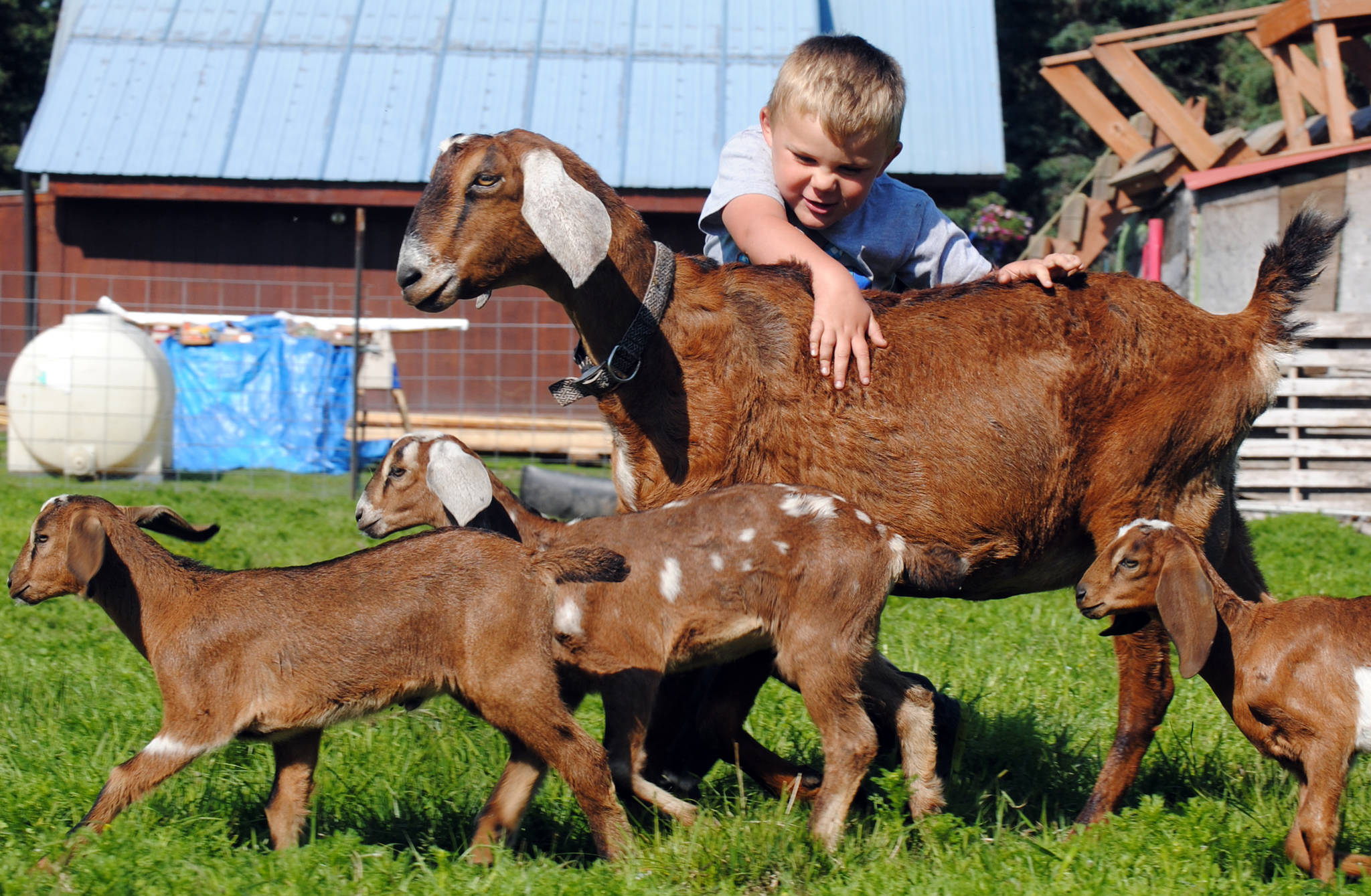The goats at Karluk Acres are starting to wean and will be heading to destinations across Alaska starting this week.
The farm, which has been producing livestock for eight years, is run on 4.8 acres of land off Kalifornsky Beach Road where Julie Wendt and Paul Vass of Karluk Acres have created a permaculture farm system centered on their livestock and poultry business of selling goats, chickens and eggs.
Fertilizer taken from the livestock raised on their property helps grow the produce in their greenhouse to fuel their bodies to work the farm. Each aspect of the farm fills a specific niche, allowing the farm to be self-sustaining.
Karluk Acres is home to a wide variety of livestock and poultry, including chickens, a pig and ducks, but a pasture of goats is the main attraction. The pair raise different breeds of goats including Nubians, Saanen and Nigerian dwarf goats that are bred and raised on the property before being sold for milking, meat or companionship.
“Everyone wants babies ready to go in the spring,” Wendt said. “So you have to have them in the cold, so one of our biggest challenges is trying to get the animals to have babies when it’s 20 below.”
Throughout the colder months, the goats and other livestock are housed indoors and kept warm throughout breeding and in their early days.
“We try to keep them warm with plenty of bedding or heat lamps,” Wendt said. “But you can’t really use heat lamps with goats because they try to knock them down constantly.”
Once the cold weather breaks, the goats are brought outside to one of the three pastures on Karluk Acres property.
“We rotate pastures during the summer time,” Wendt said. “We let them graze one pasture down and then move on to the next one.”
The goats, paired with the ducks waddling around Karluk Acres, keep Wendt and Vass from having to use lawnmowers.
After the goats grow enough to be weaned from their mother, they can be picked up by the buyers.
“Some people we find that we deal with over and over again, especially with goats,” Wendt said. “But we see new people every year that find us by word of mouth or Facebook.”
This year, they saw a dozen baby goats.
“And we’re going to keep two females from this year,” Wendt said. “The rest are all sold.”
Pacing nearby the goats’ pasture is a gaggle of chickens poking around outside of a large chicken coop on the grounds.
“We sell a lot of eggs,” Wendt said. “Just under 300 a year.”
Many of the farm’s egg sales also come from word of mouth — one customer telling their friend or posting on social media.
Past the chicken coops is a large greenhouse.
“Right now, the produce is for ourselves,” Vass said. “But next spring, when we have a little more experience with the high tunnel, we’ll start doing a CSA weekly pickup.”
The pair started the high tunnel two years ago, which joins two green houses and a garden on the property and they are currently growing a variety of produce, including peppers, potatos and cucumbers.
Throughout the farm, chickens and ducks can be seen feeding or being chased by a loud black pig.
“We have just this one pig this year,” Vass said. “We used to raise weiner pigs, had 10 sows and two boars but this year we’re raising one for the freezers. We’re getting a second one tomorrow, though, because they do better in pairs… It’s in the nature of hogs. If there are two hogs and one is full, but notices the other one eating it won’t be able to stand it, so it will get up and start eating. That’s why we call them pigs.”

